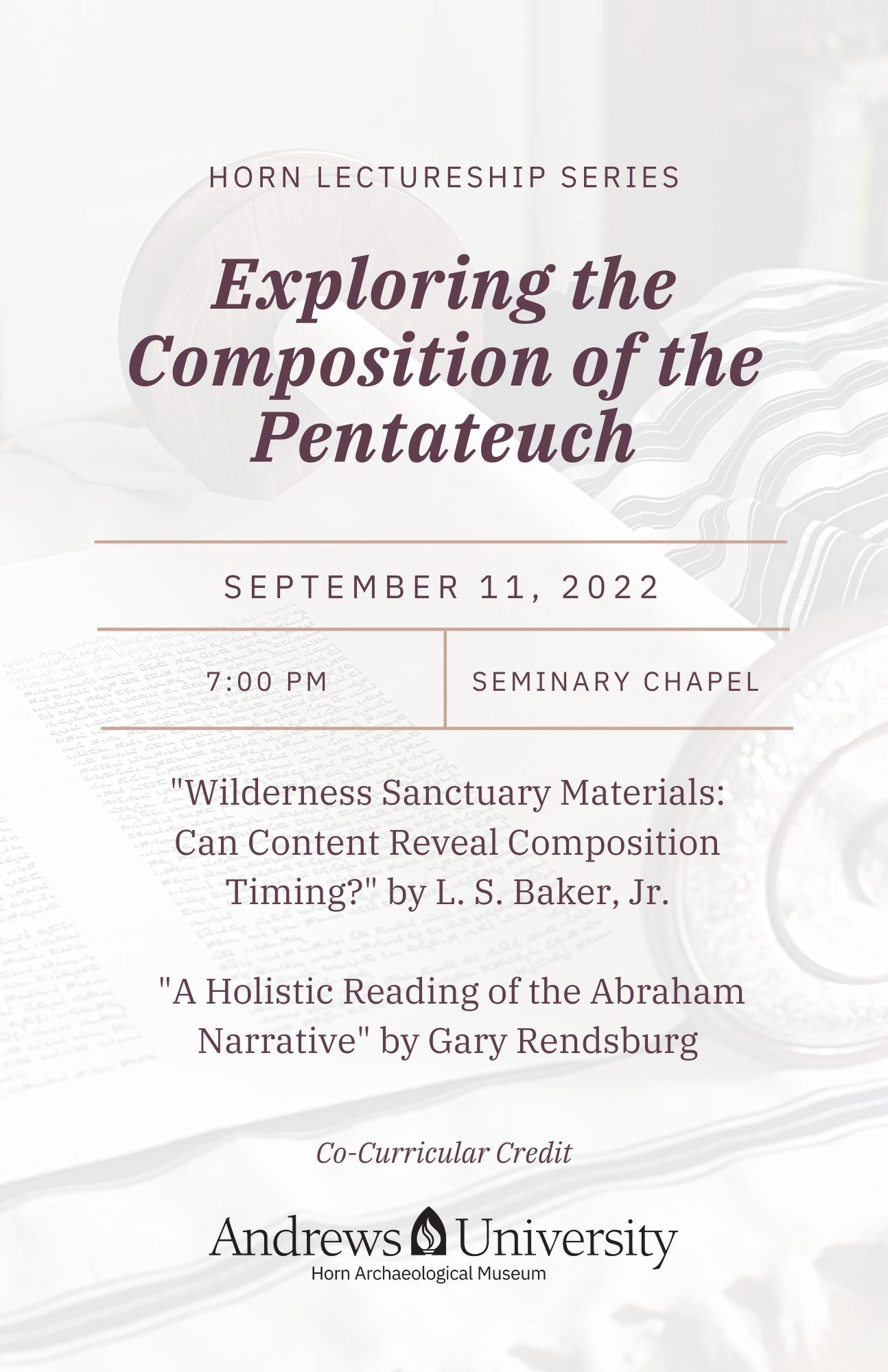The Implications of Current Ezekiel Research for Theories of the Composition of the Pentateuch
Presenter Status
Professor of Theology
Location
Seminary Chapel
Start Date
5-4-2016 1:30 PM
End Date
5-4-2016 2:00 PM
Session
Interrelations of Legal Material in Torah
Presentation Abstract
Theories of the composition of the Pentateuch have often been developed without adequately taking into account the literary evidence of the Book of Ezekiel. This is a methodological error, because the literary relationship between Ezekiel and the Pentateuch is extremely strong, especially between Ezekiel and the Holiness Code ("H," Leviticus 17-26), but also with Deuteronomy ("D") and other parts of the Pentateuch. Therefore, theories of the composition of the Pentateuch impinge on theories of the composition of Ezekiel, and vice-versa. This paper examines four pericopes from Ezekiel that exhibit a pattern of conflation of words and phrases from H with those of D, together with terms associated with what scholars have called the "Zion tradition." Essentially, Ezekiel conflates H and D and "Zionizes" both. This finding has many significant implications for theories of the relative and absolute dates of the Pentateuchal literary strata and the purpose of the final redaction of the Pentateuch. Ezekiel must post-date H and D, since it conflates both. Moreover, the fact that the text of Ezekiel finds it necessary to incorporate references to Jerusalem/Zion into oracles otherwise composed of Pentateuchal language highlights, in dramatic fashion, the absence of Zion theology or terminology from the Pentateuch itself. This absence is difficult to explain if the Pentateuch was redacted—as some have proposed—by Persian period priests intent on legitimizing the Jerusalem Temple.
Biographical Sketch
Dr. John Bergsma, Ph.D., is Professor of Theology at the Franciscan University of Steubenville (Ohio). He holds a B.A. in Classical Languages from Calvin College (Grand Rapids, MI), the M.Div. and Th.M. from Calvin Theological Seminary (Grand Rapids, MI), and a Ph.D. in Theology from the University of Notre Dame (South Bend, IN). He is the author of The Jubilee from Leviticus to Qumran (VTSup 115; Brill, 2007), and articles in Biblica, Dead Sea Discoveries, Vetus Testamentum, The Journal of Biblical Literature, Markets & Morality, and other scholarly journals, festschrifts, dictionaries, encyclopedias, and essay collections. His academic interests include the Pentateuchal composition, the interrelationship of the Pentateuchal law codes, the literary and theological relationship between Ezekiel and the Pentateuch, jubilary concepts in canonical and non-canonical texts, and covenant theology. He and his wife Dawn reside with their eight children in Steubenville, Ohio.
The Implications of Current Ezekiel Research for Theories of the Composition of the Pentateuch
Seminary Chapel
Theories of the composition of the Pentateuch have often been developed without adequately taking into account the literary evidence of the Book of Ezekiel. This is a methodological error, because the literary relationship between Ezekiel and the Pentateuch is extremely strong, especially between Ezekiel and the Holiness Code ("H," Leviticus 17-26), but also with Deuteronomy ("D") and other parts of the Pentateuch. Therefore, theories of the composition of the Pentateuch impinge on theories of the composition of Ezekiel, and vice-versa. This paper examines four pericopes from Ezekiel that exhibit a pattern of conflation of words and phrases from H with those of D, together with terms associated with what scholars have called the "Zion tradition." Essentially, Ezekiel conflates H and D and "Zionizes" both. This finding has many significant implications for theories of the relative and absolute dates of the Pentateuchal literary strata and the purpose of the final redaction of the Pentateuch. Ezekiel must post-date H and D, since it conflates both. Moreover, the fact that the text of Ezekiel finds it necessary to incorporate references to Jerusalem/Zion into oracles otherwise composed of Pentateuchal language highlights, in dramatic fashion, the absence of Zion theology or terminology from the Pentateuch itself. This absence is difficult to explain if the Pentateuch was redacted—as some have proposed—by Persian period priests intent on legitimizing the Jerusalem Temple.




Images